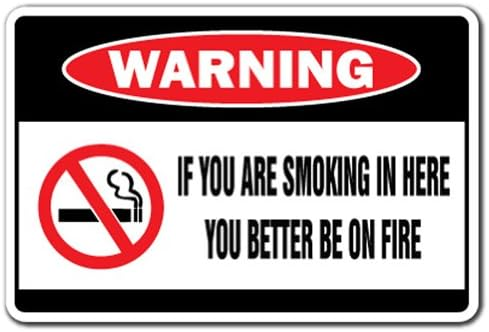-
Posts
575 -
Joined
-
Last visited
Sirius's Achievements
-
-
I quit using patches and I took my time with it. Using patches breaks up the quit into two parts. While on the patch you still get nicotine but you break the habit of not smoking. You get used to not smoking, taking the smoke breaks, having something in your hands. Tapering off wasn't fun but it was manageable. When I stopped using the patch I felt like I was missing something but wasn't sure what it was. Still had smoking dreams. Still had occasional nicotine fits. Still have to be 100% committed and serious about your quit. Still, it was something I could deal with; especially with the resources and people at the Quittrain.
-
Best read over here: ===> https://www.cnn.com/2024/02/14/health/smoking-immune-system/index.html Study finds that smoking hoses your immune system. Smoking’s effects on the immune system can last years, study finds By Jen Christensen, CNN 4 minute read Published 11:00 AM EST, Wed February 14, 2024 When smokers in a new study quit, their immune response got better at one level, but it didn’t completely recover for years. Catherine Falls Commercial/Moment RF/Getty Images CNN — Smoking tobacco is so harmful to the body that it changes a person’s immune system, leaving them vulnerable to more disease and infection even years after they’ve quit, a new study found. Although smoking rates have been declining since the 1960s, it’s still the leading cause of preventable death in the United States, causing more than 480,000 deaths each year. For decades, health care providers have told smokers that the habit can lead to serious problems like lung cancer, heart attack or stroke, but a study published Wednesday in the journal Nature offers another reason to quit. RELATED ARTICLECDC anti-smoking campaign takes aim at menthol cigarettes The research shows how smoking decreases the body’s ability to fight off infection immediately and over time, and may also put someone at risk of chronic diseases involving inflammation, such as rheumatoid arthritis and lupus. “Stop smoking as soon as possible,” warned study co-author Dr. Violaine Saint-André, a specialist in computational biology at Institute Pasteur in Paris. “The key message of our study, especially to the youth, is that there seems to be a significant interest for long-term immunity to never start smoking.” The researchers looked over time at blood samples from a group of 1,000 healthy people ages 20 to 69. The group was equally divided between men and women. The researchers wanted to see how 136 variables including lifestyle, socioeconomic issues and dietary habits – in addition to age, sex and genetics – affected immune response. They exposed the blood samples to common germs like E. coli bacteria and the flu virus and measured the immune response. Smoking, body mass index and a latent infection caused by the herpes virus had the most impact, with smoking creating the biggest change. It had nearly the same impact on immune response as important factors such as age or sex. “It’s considerable,” Saint-André said. When smokers in the study quit, their immune response got better at one level, but it didn’t completely recover for years, according to study co-author Dr. Darragh Duffy, who leads the Translational Immunology unit at the Institute Pasteur. RELATED ARTICLE Hoping to clear the air in casinos, workers seek to ban tobacco smoke “The good news is, it does begin to reset,” he said. “It’s never a good time to start smoking, but if you’re a smoker, the best time to stop is now.” The study also found that the more someone smoked, the more it changed their immune response. “Cutting down any amount is still a good thing in terms of this impact,” Duffy said. Smoking, the study found, seemed to have long-term epigenetic effects on the immune system’s two major forms of protection: the innate response and the adaptive response. The effect on the innate response quickly goes away when someone stops smoking, but the effect on the adaptive response persists even after they quit. The innate immune response is the general way the skin, mucous membranes, immune system cells and proteins fights germs. It’s a fast mover, but it’s a blunt instrument. When the body determines that the innate response isn’t protective enough, the adaptive immune system kicks in. It is made of antibodies in the blood and other bodily fluids, B and T lymphocytes that can “remember” a threat and better target threats it’s seen before. “The major discovery of our study is that smoking has short-term but also long-term effects on adaptive immunity associated with B cells and regulatory T cells and with epigenetic changes,” Saint-André said. The new research has some limitations. The experiment was done in blood samples in the lab, but the immune system may react differently in real life. However, human challenge studies are still relatively limited in size compared with what they were able to show with a large collection of blood samples, Duffy says. RELATED ARTICLE5 key health resolutions for 2024 Dr. Yasmin Thanavala, a professor of oncology in the Department of Immunology at the Roswell Park Cancer Institute, whose smoking immune response research was referenced in the new study, said the work was “a wonderful validation” of what her research has found over the years. Thanavala’s research exposed mice to smoke instead of human blood. Those mice cleared a bacterial infection less efficiently and with a less-robust immune response than mice that weren’t exposed. Changes in the lungs subside, she said, but “never go away.” She points to one limitation in the new study that she hopes researchers will address going forward: the homogeneity of the participants, who were all French and did not have high body weights. “We know that numerous things besides smoking impacts our immune response. Our genetic background impacts our immune response. There’s also increasing evidence that our body weight, obesity, impacts immune response,” Thanavala said. Sign up here to get The Results Are In with Dr. Sanjay Gupta every Tuesday from the CNN Health team. Dr. Albert Rizzo, chief medical officer of the American Medical Association, said that doctors have long known that smoking leads to inflammation in the lung but that that doesn’t account for all the problems with the immune system. It also seems to explain why even smokers who may have quit may still develop conditions like chronic obstructive pulmonary disease or COPD. “This study is helpful since it tells us what we’ve always thought but now starts to explain the why,” said Rizzo, who wasn’t involved with the new research.
- 1 reply
-
- 7
-

-

-
It's been a while since I last had a smoke. I can go weeks without thinking about cigarettes and smoking. Even the dreams of smoking have become quite rare. The secret is, don't ever smoke. I could probably have a smoke at this point and get away with it but why would I? I mean, I could gargle powdered glass too but I'm not going to. Smoking sucks. When you realize you could, but you just don't want to, is the point where you are thinking and acting like a non-smoker. Never completely a non-smoker but close enough to feel pretty relaxed about the whole thing.
-
Sorry to hear about your mis-step. The next time you feel your will power being sorely tested I'd like you to reread this thread of posts. You don't want to go down this road again. Its a gauntlet of remorse and self-recriminations. If you can quit for two months then the physical symptoms are not your enemy so much as your Junkie brain at odds with your higher reasoning. Don't even make smoking an option. Picture all of us cheering you on as you make the decision to stay the course.
-
All those reasons plus we paid good money to have it all happen to us. There is nothing quite like total addiction.
-
Avoiding the urge to smoke is mostly about avoiding the situations and activities that you strongly associate with smoking. I say mostly as the urge to smoke will find you however much you try to hide. It's like a tax collector on the trail of a lottery winner. I would recommend activities, social activities, wherein smoking is a complete non-starter.
-

FREE To All New Members Who Register...
Sirius replied to jillar's topic in Quit Smoking Discussions
-
Its difficult to count up the years being smoke-free if you cheat.
-
Everything you do, smokefree, is going to be a bit rough until you get used to doing those things without smokes. Sadly, that includes holidays. Great job grinding through the season.
-
Well done Wayne! Quitting will help ensure a long & happy retirement.
-
-
For epic high fantasy I'd recommend Roger Zelazny's "Nine Princes in Amber" It hails back from 70's but has aged very well.





.thumb.webp.27b20c94ecbcddb53f377739a23cd81a.webp)








